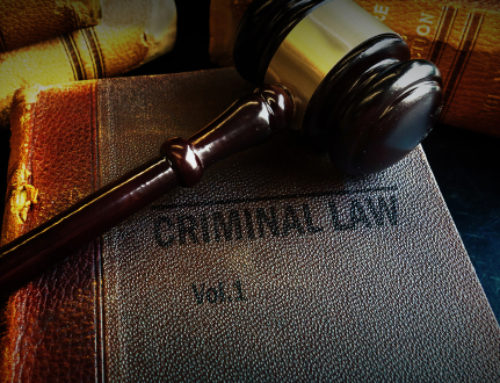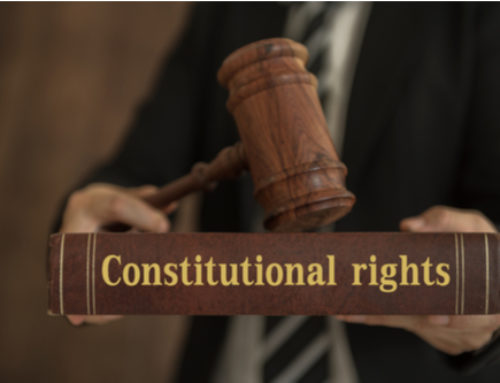Our Phoenix and Tempe criminal defense lawyers explain the differences between felonies, misdemeanors, and minor offenses in Arizona.
Because the conduct regulated by the criminal laws of the State of Arizona ranges from relatively minor to devastatingly violent, the Arizona Criminal Code classifies crimes in three levels or “degrees.” The classification of a crime reflects its seriousness, although it is important to acknowledge that all crimes carry the potential for severe consequences.
If the police stop you to question you about a crime, or if you are accused of a crime or arrested on criminal charges, you must consult with a Phoenix or Tempe criminal defense attorney as early in the process as possible. An experienced criminal defense attorney will be able to explain the severity of the crime at issue, the possible ramifications of a conviction, and the defenses you have available. Your attorney can also communicate with the police and prosecutors on your behalf to ensure that you do not say anything that could jeopardize your defense.
There are Three Main Classes of Crimes in Arizona
There are three main classes of crimes in Arizona. In order of seriousness, these are (i) felony offenses, (ii) misdemeanor offenses, and (iii) minor offenses. While facing a felony charge is an extremely serious matter, even a conviction for a minor offense can have significant and long-term consequences.
1. Felony Offenses
Under federal law and the laws of about half of all U.S. states, a felony is a crime that is punishable by imprisonment of more than one year. Other states define a felony as a crime punishable by death or a prison sentence served in a state penitentiary. Under Arizona law, all felonies carry a presumptive sentence of one year, but defendants will be eligible for a shorter minimum or mitigated sentence in some cases.
Generally speaking, the most serious crimes, such as those that either particularly heinous, those that involve dangerous weapons, and those that cause relatively high amounts of financial damage or harm to property, are classified as felonies. In Arizona, examples of felonies include murder, treason, rape, arson, burglary, and kidnapping. A limited number of crimes, such as murder, can be punished by the death penalty. These crimes are often referred to as “capital offenses.” There are six classes of felonies in Arizona:
- Class 1 – First and second-degree murder (penalties vary by case)
- Class 2 – Presumptive sentence of 5 years
- Class 3 – Presumptive sentence of 3.5 years
- Class 4 – Presumptive sentence of 2.5 years
- Class 5 – Presumptive sentence of 1.5 years
- Class 6 – Presumptive sentence of 1 year
Due to the seriousness of the offense and the potential penalties, maximum safeguards for the defendant’s rights are built into the prosecution and court procedures for felony cases. For example, indigent defendants who cannot afford to hire a lawyer and face felony charges have the right to a free state-appointed criminal defense attorney (commonly known as a “public defender”). Additionally, all persons accused of felonies in Arizona have the right to a trial by jury (as opposed to a trial by judge, also known as a “bench trial”).
In addition to imprisonment and financial penalties, other long-term consequences of a felony conviction in Arizona can include:
- A requirement to register with certain criminal registries
- Immigration consequences (if applicable)
- Ineligibility for elected office and professional licenses
- Ineligibility for housing, public benefits, educational benefits, and certain jobs
- Loss of the right to serve as a juror
- Loss of the right to vote
- Negative impacts on parental rights and divorce proceedings
- Restrictions on the right to possess weapons
2. Misdemeanor Offenses
Under federal law and the criminal laws of about half of all U.S. states, a misdemeanor is a crime. The maximum possible punishment is incarceration for one year or less. In other states, a misdemeanor is defined as a crime punishable only by a fine or by incarceration in jail. Some states have different classes of misdemeanors, for example, “petty offenses” that are punishable by six months or less in jail and “simple” or “minor” misdemeanors that have a maximum punishment of 90 days in jail. In Arizona, the maximum penalty for a misdemeanor conviction is six months of imprisonment. Arizona law establishes three classes of misdemeanor offenses:
- Class 1 – Maximum term of imprisonment of 6 months
- Class 2 – Maximum term of imprisonment of 4 months
- Class 3 – Maximum term of imprisonment of 30 days
Generally, misdemeanors are less violent crimes in nature or involve relatively low levels of harm or financial loss. Since the penalties are less severe, the legal procedures for misdemeanor cases are usually simpler as well. For example, there is no federal right to a grand jury in misdemeanor cases, and state grand jury rights for misdemeanors vary. Additionally, indigent defendants are generally only eligible for free state-appointed legal counsel when the misdemeanor charges can result in imprisonment upon conviction.
Likewise, the long-term consequences of a misdemeanor conviction are normally less severe than those for felonies. However, some of the felony consequences listed above may still apply in misdemeanor cases as well. However, individuals convicted of misdemeanors generally retain the right to vote.
3. Minor Offenses
Least-severe crimes are classified as “minor offenses.” The terminology varies by state, but common terms for these offenses include petty offenses, infractions, and violations. Often, the only penalty is a fine, and sometimes the offense may not even be considered a crime. In Arizona, violations of local ordinances may be punishable by a fine or a short period of incarceration (no more than 90 days).
Speak with a Criminal Defense Lawyer in Phoenix for Free
If you face any criminal charge in Arizona, the most important thing you can do is discuss your case with an experienced criminal defense lawyer. Call 480-405-7922 or request a free initial consultation online to schedule an appointment with a criminal attorney at The Weingart Firm as soon as possible.






